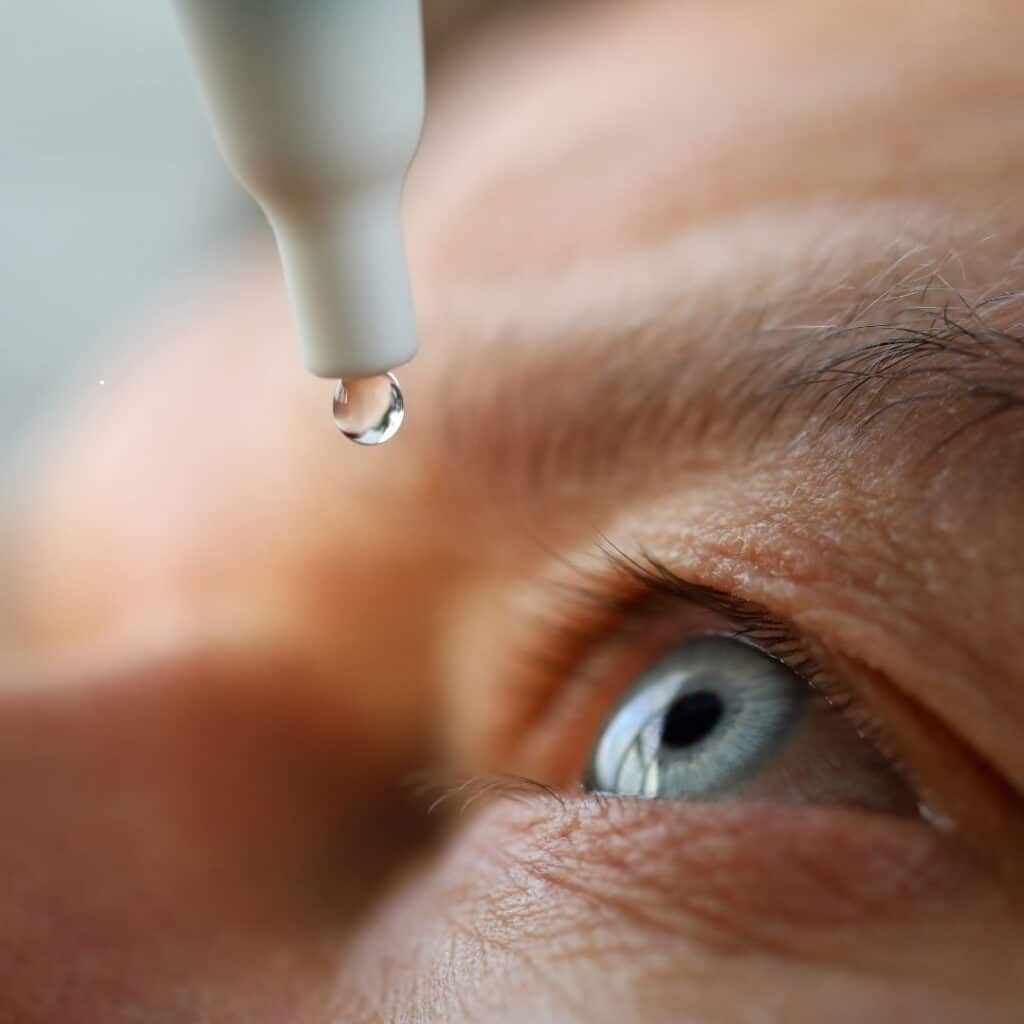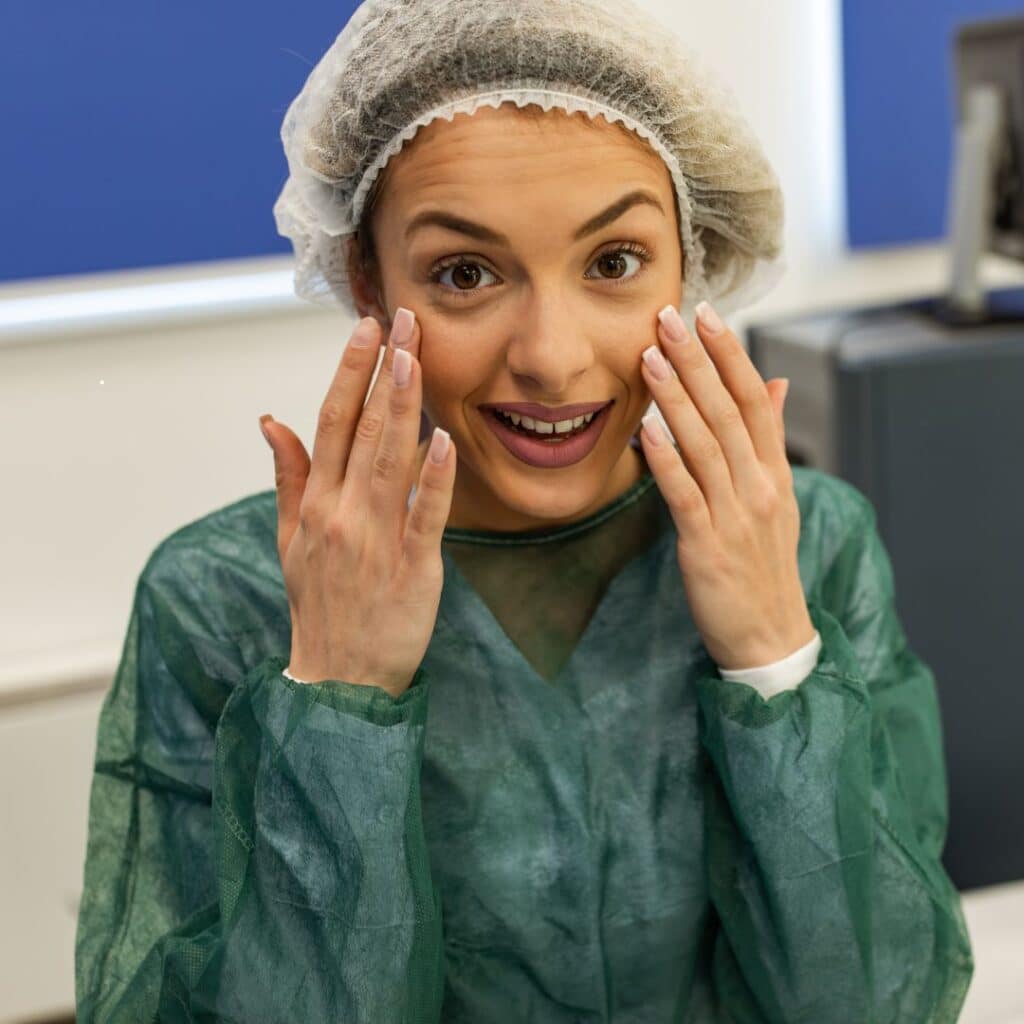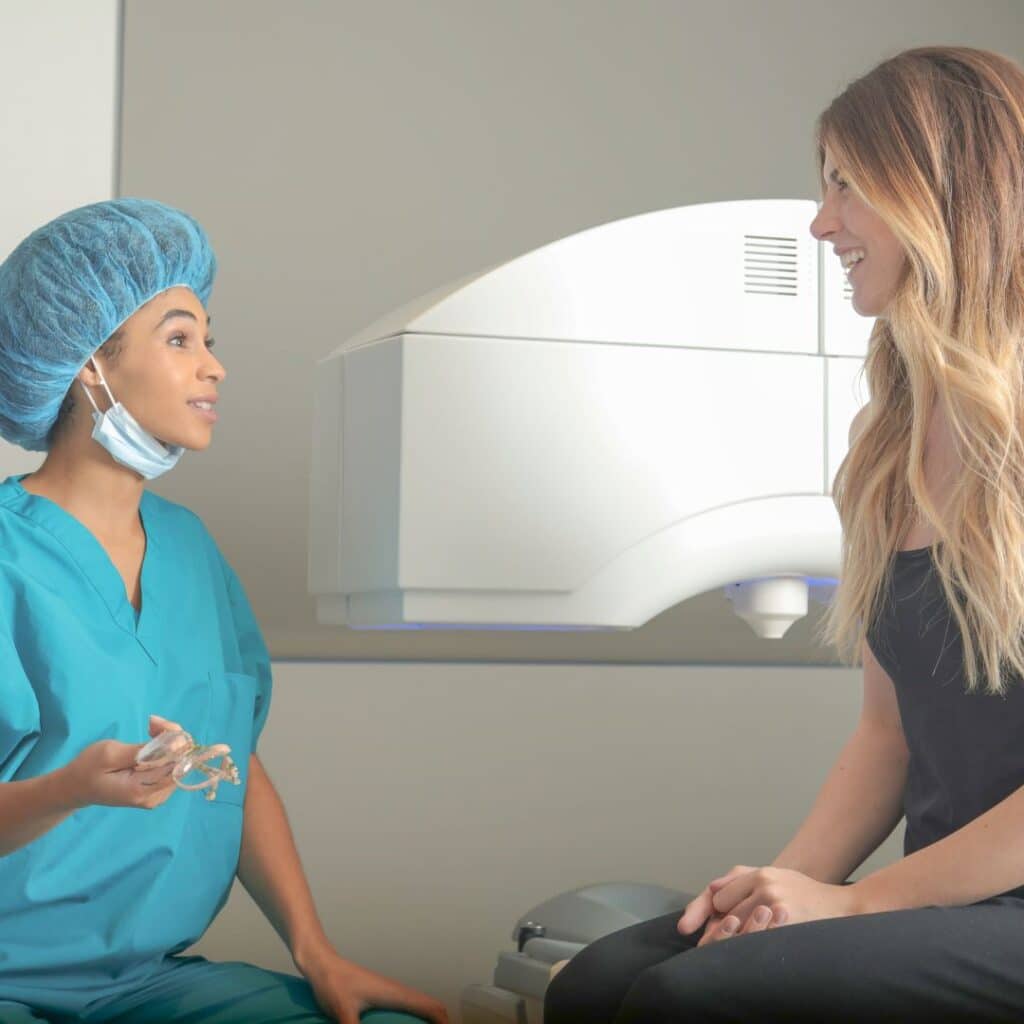Imagine waking up with crystal-clear vision, free from the constraints of glasses and contact lenses. That’s the magic of LASIK surgery, a popular and effective procedure for correcting common vision problems like nearsightedness, farsightedness, and astigmatism. But how does LASIK work? In a nutshell, LASIK involves reshaping the cornea using a laser, allowing light entering the eye to be properly focused onto the retina. While the results can be life-changing, some patients experience temporary light sensitivity and glare after the surgery.
Picture stepping outside and feeling overwhelmed by the brightness of the sun or struggling to see while driving at night due to the glare from oncoming headlights. These day-to-day problems can be quite common after LASIK. The reason behind this increased sensitivity and glare is the healing process of your cornea, which may take some time to fully stabilize. The discomfort usually subsides within a few weeks to a few months, but protecting your delicate, healing eyes is crucial.
In this blog post, we'll guide you through selecting the best sunglasses after LASIK surgery to help you manage light sensitivity and reduce glare. Choosing the best sunglasses after LASIK surgery can make a world of difference in your comfort and recovery process.
We understand how exciting yet challenging your post-LASIK journey can be. With so many options out there, selecting the right sunglasses might feel overwhelming. Let's break it down for you to ensure you're making the best decision for your comfort and eye health.
After LASIK surgery, your eyes are more vulnerable to the sun's ultraviolet (UV) rays, making it essential to choose sunglasses with adequate UV protection.
UVA and UVB rays are the two types of ultraviolet radiation that can cause significant harm to your eyes. UVB rays, which are more intense, can cause acute damage to the cornea and lens, while UVA rays penetrate deeper, contributing to long-term concerns like cataracts and macular degeneration. Protecting your eyes from both types of rays is crucial, especially as they heal.
To shield your eyes effectively, look for sunglasses labeled "UV 400" or "100% UV Protection." These labels indicate that the lenses block all light rays up to 400 nanometers, including UVA and UVB rays, offering comprehensive protection. According to a study, UV-blocking sunglasses significantly reduce the risk of sun-induced eye damage, underscoring the importance of investing in quality eyewear.
Advancements in lens technology have greatly improved the comfort and visual experience when you wear sunglasses, making them an indispensable part of post-LASIK care.
Polarized lenses are particularly beneficial after LASIK, as they help reduce glare, which can be particularly uncomfortable during your recovery period. Polarized lenses contain a special filter that blocks intense reflected light, significantly reducing glare from surfaces like water, roads, and windows. This glare reduction can ease eye strain and improve visual clarity, allowing you to navigate your surroundings more comfortably. While polarized lenses effectively reduce glare, be mindful that they may cause visual distortions on digital screens, such as those on your smartphone or car dashboard. It's crucial to test these lenses in various conditions to ensure they suit your lifestyle needs.
The tint and darkness of your sunglasses lenses also play a significant role in your overall comfort and visual experience post-LASIK.
Different lens tints affect how much light reaches your eyes. Darker tints reduce the amount of light entering your eyes, which can be helpful in extremely bright light but may hinder visibility in lower light conditions. Consider the environments you frequent and choose a tint that balances light transmission for your activities. For daily use, a medium tint that offers sufficient protection without overly darkening your vision is often ideal. If you engage in specific activities, such as skiing or boating, you might require specialized tints to enhance contrast and detail, helping you perform better and stay safer in those environments.
Finding frames that offer ample size and coverage is crucial. Bigger frames cover more of the area around your eyes, providing added protection from the sun's harmful rays and preventing light from sneaking in from the sides. This added protection is especially important post-LASIK, as your eyes are more sensitive during the healing process.
Wrap-around frames are an excellent choice because they contour your face, giving you 360-degree protection from harsh sunlight and environmental elements. By minimizing peripheral light exposure, these frames maximize both protection and comfort, ensuring your healing eyes aren’t strained.
To find the perfect size, consider the shape of your face. Sunglasses that are too large or too small can lead to discomfort and inadequate coverage. Take the time to try on different sizes to see what fits your face best, ensuring a snug yet comfortable fit that keeps the sunglasses securely in place.
The material of the frame plays a significant role in durability and comfort. Lightweight materials can reduce the strain on your nose and ears, while durable materials ensure longevity. Striking the right balance is key to maintaining comfort, especially with longer wear.
For example, plastic frames are generally lightweight and come in a myriad of styles and colors, but they can be less durable than metal options. Metal frames, on the other hand, offer sturdiness and a sleek look but can be heavier and may cause discomfort during prolonged wear.
Your day-to-day activities will dictate the best frame type for you. If you live an active lifestyle, frames with a secure fit and impact-resistant materials are essential. Conversely, if your routine involves less physical activity, prioritize comfort and aesthetics.
Don’t forget, your sunglasses are also a statement piece. Finding frames that reflect your style while offering the necessary protection can be a fun and rewarding experience.
Navigating the numerous options for sunglasses after LASIK laser eye surgery can be overwhelming, but the right features can make your recovery more comfortable and your vision clearer.
Anti-reflective (AR) coating on your sunglasses can dramatically improve your visual comfort by reducing glare. This coating cuts down on reflections from surfaces such as windows, water bodies, and even your lenses, which can be particularly annoying when driving or spending time outdoors.
Ensuring that your sunglasses are equipped with a scratch-resistant coating is crucial for maintaining their longevity and clarity. Everyday wear and tear can easily lead to scratched lenses, which can impair vision and necessitate early replacement. Scratch-resistant coatings form a protective barrier on the lens surface, safeguarding your investment and ensuring your vision remains unobstructed.
A hydrophobic coating can be a game-changer, especially if you lead an active lifestyle or live in a humid climate. This coating repels water and sweat, preventing droplets from clinging to your lenses and obscuring your vision. Whether you're biking, hiking, or simply enjoying a sunny day, hydrophobic lenses help keep your view clear.
First and foremost, selecting a reputable retailer is crucial when purchasing sunglasses after LASIK. Look for retailers with positive customer reviews and a solid return policy, as this reflects their confidence in the quality of their products.
Trusted brands often provide detailed information about their frames and lenses, including the specific coatings and materials used. This transparency ensures that you are getting the best possible protection and comfort for your eyes.
When you're ready to make your purchase, coming prepared with a few key questions can make all the difference.
We understand that caring for your new sunglasses can feel daunting, but a little extra effort can make them last much longer and keep your vision crystal clear.
Cleaning your sunglasses properly is essential for maintaining their longevity and ensuring you always see clearly.
Proper storage is equally as crucial in preserving your sunglasses. Always keep them in a hard-shell protective case when not in use to prevent accidental damage. Soft cases are better than nothing but don’t offer the same level of protection. If you don’t have a case, placing your sunglasses in a drawer lined with a soft cloth can help prevent scratches.
Avoid leaving them on car dashboards, as extreme temperatures can warp or damage the frames and lenses. Keeping a consistent storage routine will ensure your sunglasses are always ready to offer you the best protection and performance.
Choosing the best sunglasses after LASIK surgery is more than just about style; it’s about protecting your investment in your vision. The plethora of options can be overwhelming, but focusing on essential features like UV light protection, anti-reflective, scratch-resistant, and hydrophobic coatings will ensure your eyes remain well-protected and comfortable. Caring for your sunglasses with proper cleaning and storage techniques will also extend their life, helping you enjoy clear vision for years to come.
If you're considering LASIK surgery and want guidance on selecting the best sunglasses for your post-op care, we’re here to help. Get in touch with our eye doctors at TVLC today to ensure your eyes receive the professional care they deserve!
Book Your Consultation With TVLC Today & See The World Clearly!




